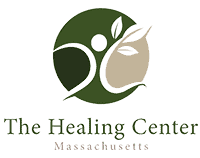Addiction is a complex and multifaceted issue that affects millions of people worldwide. It is a chronic condition characterized by the compulsive and uncontrollable use of substances or engagement in behaviors, despite negative consequences. While addiction is often associated with substance abuse, such as drugs and alcohol, it can manifest in various forms. In this article, we will explore the different types of addiction and gain a deeper understanding of this pervasive problem.
What Defines Addiction?
Addiction can be defined as a chronic and relapsing disorder characterized by compulsive and uncontrollable engagement in a substance or behavior, despite negative consequences. It is marked by a loss of control over the substance or behavior, cravings or strong urges to engage in it, and the continued use or engagement despite adverse effects on one’s health, relationships, work, and overall well-being.
Several key elements that define addiction include:
- Compulsion: Addiction involves a strong compulsion or urge to engage in a particular substance or behavior. The individual feels a powerful and often uncontrollable desire to consume the substance or engage in the behavior, even if they are aware of the negative consequences.
- Loss of Control: People with addiction find it challenging to control or limit their consumption of a substance or their engagement in a behavior. They may repeatedly attempt to cut down or quit but struggle to maintain abstinence.
- Tolerance: Over time, individuals with addiction develop a tolerance to the substance or behavior. This means that they require increasing amounts of the substance or engage in the behavior more intensely or frequently to achieve the desired effect or “high.”
- Withdrawal: When the substance or behavior is reduced or stopped abruptly, individuals with addiction may experience withdrawal symptoms. These symptoms can be physical, such as tremors, nausea, or sweating, or psychological, such as irritability, anxiety, or depression.
- Negative Consequences: Despite the adverse consequences, individuals with addiction continue to engage in the behavior or consume the substance. These consequences may include health problems, deteriorating relationships, financial difficulties, legal issues, and impairment in various areas of life.
It’s important to note that addiction is not simply a matter of willpower or a lack of moral character. It involves complex interactions between genetic, environmental, and psychological factors. While some people may be more predisposed to addiction due to genetic or biological factors, environmental influences, such as peer pressure, stress, trauma, or the availability of substances, can also play a significant role in the development of addiction.
Recognizing the defining characteristics of addiction is crucial for early intervention and effective treatment. Addiction is a chronic condition, but with the right support, treatment, and ongoing management, individuals can recover and lead fulfilling lives in long-term recovery.
What Are The Different Types Of Addiction?
Addiction can manifest in various forms, and it is important to understand the different types to recognize the specific challenges and treatment approaches associated with each. Here are some of the different types of addiction:
Substance Addiction
Substance addiction is perhaps the most well-known type and involves dependence on drugs or alcohol. It includes both legal substances, like prescription medications, and illicit drugs. Substance addiction can have severe physical, psychological, and social consequences, often leading to health issues, strained relationships, and legal troubles.
Alcohol Addiction
Alcohol addiction, also known as alcoholism, is a specific form of substance addiction focusing on the excessive and compulsive consumption of alcohol. It can result in physical dependence, tolerance, withdrawal symptoms, and the inability to control or limit alcohol intake. Alcohol addiction can have devastating effects on one’s health, relationships, and overall well-being.
Drug Addiction
Drug addiction encompasses a wide range of substances, including illicit drugs like cocaine, heroin, methamphetamine, and marijuana, as well as prescription medications like opioids and benzodiazepines. Drug addiction involves both physical dependence and psychological cravings, often leading individuals to engage in risky behaviors to obtain drugs and sustain their addiction.
Behavioral Addictions
In addition to substance-related addictions, behavioral addictions are characterized by an individual’s compulsive engagement in certain activities or behaviors. Although they do not involve substances, they can still have profound negative effects on a person’s life. Common types of behavioral addictions include:
Gambling Addiction
Gambling addiction is an impulse control disorder characterized by the inability to resist the urge to gamble, despite negative consequences. It can lead to financial ruin, strained relationships, and psychological distress.
Internet and Gaming Addiction
With the proliferation of technology, internet, and gaming addiction have become more prevalent. Excessive use of the internet, online gaming, or video games can lead to social isolation, neglect of responsibilities, and deterioration of mental health.
Shopping Addiction
Shopping addiction, also known as compulsive buying disorder, involves an uncontrollable urge to shop and make purchases, often resulting in financial difficulties, accumulating debt, and emotional distress.
Food Addiction
Food addiction is characterized by an unhealthy and compulsive relationship with food, where individuals experience a loss of control over their eating habits. This can lead to obesity, health problems, and emotional distress.
Work Addiction
Work addiction, also known as workaholism, is an obsessive need to work excessively and compulsively, often at the expense of personal relationships, health, and overall well-being.
Understanding the different types of addiction is crucial in developing effective prevention strategies, treatment approaches, and support systems. It is important to recognize that addiction is a complex condition influenced by biological, psychological, and social factors. Treatment for addiction typically involves a combination of therapies, counseling, support groups, and sometimes medication.
If you or someone you know is struggling with addiction, it is essential to seek professional help and support. Recovery is possible, and with the right resources and support, individuals can overcome addiction and lead fulfilling lives. Remember, addiction is not a moral failing or a lack of willpower but a treatable medical condition that requires understanding, compassion, and appropriate intervention.
Getting Help For Addiction
Are you or someone you know struggling with addiction? It’s time to take action and reclaim your life. Don’t let addiction define you any longer. Reach out for help and start your journey toward recovery. You deserve a life free from the chains of addiction, and there are resources available to support you every step of the way. Don’t wait another day. Make the call, seek guidance, and embark on a path of healing. At Full Of Life Recovery Center, we can help you conquer addiction and build a brighter future. Your recovery starts now, contact our admissions team today.







